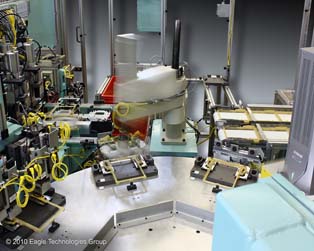Automation (because of the manual labor jobs it absorbs) has come to be like a dirty word amongst workers in the trenches of the manufacturing industry. However, the reality is that automation also creates jobs and companies are more apt to fill new positions from their current workforce. With a little more tech training, an assembler can become an operator. Managers and maintenance also need to be a part of the transition.
Operators
Also called technicians, these people operate the machines that are not fully automated. They help keep the flexible arms running, for example. Many factories are only partially automated, often called flexible automation. These factories rely only partially on robotics, with operators filling in where the robotics do not.
Support Engineer
The support engineer takes the place of or works with the maintenance personnel. This is the person who continuously tests, calibrates, cleans, lubricates, and repairs the automated machines. The position requires extensive training in robotics, computer technology, and mechanical engineering. Factories that operate under flexible automation must also have a support engineer who can fix the manual machines as well. Preventive maintenance schedules are also a part of this person’s job description.
Applications/Software Engineer
The automated machinery is given commands using software designed to mimic human movements. The precise specifications needed in order to create the product, along with the precise movements required to meet those specifications, are all programmed into the machine’s software. This engineer is the person who administers and maintains the software.
Software Developer
The research and development specialist who designs the software is called the software developer. He works with the engineers to create software that the applications engineers use to command the machinery.
Service Specialist
An arm of the customer care department, the service specialist is a person who handles customer support for factory management in spare parts inventory, sales, and even some light troubleshooting.
Automation continues to reform the manufacturing industry, creating skilled labor jobs that are, in the long run, better paying and harder to out-source. As firms turn toward the future, automation should be seen as a new opportunity, not an enemy of the laborer.


